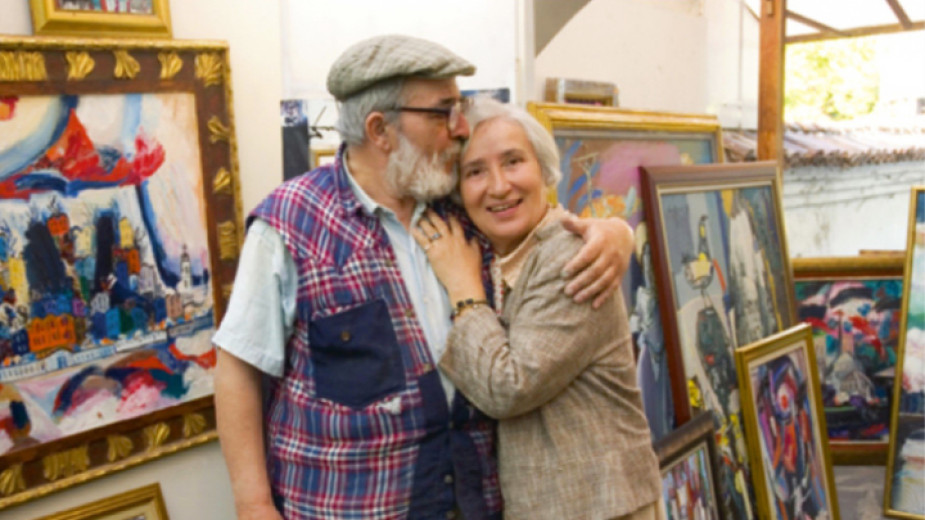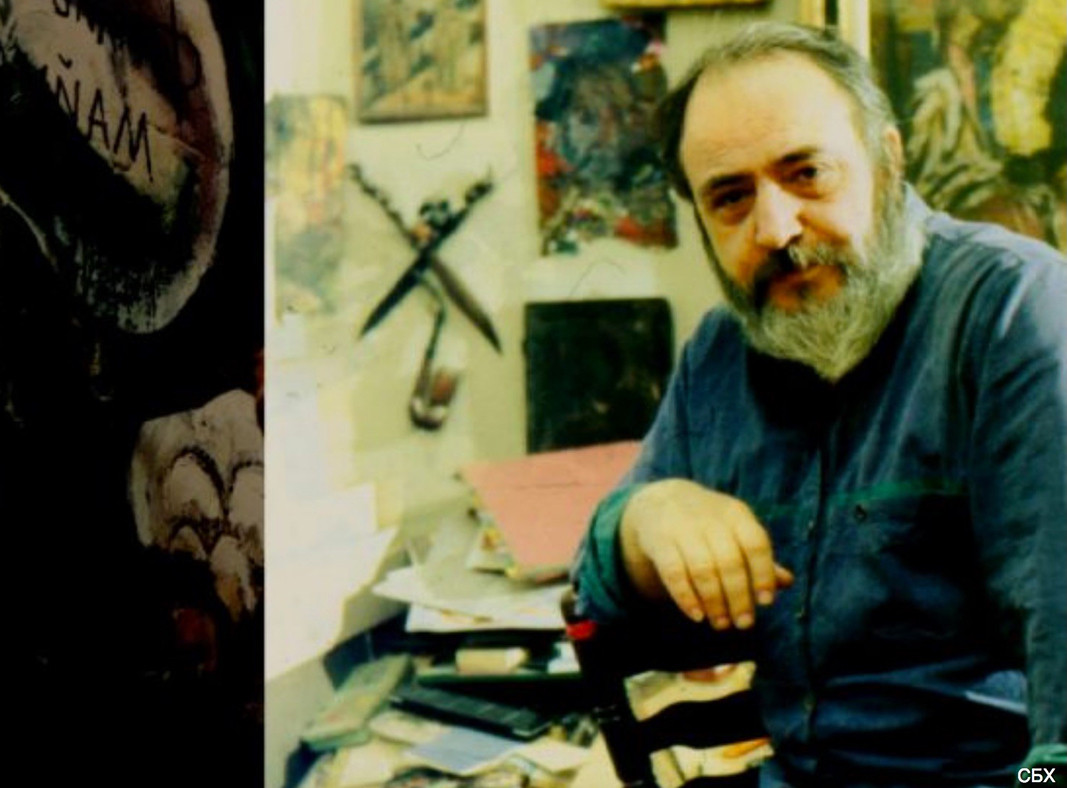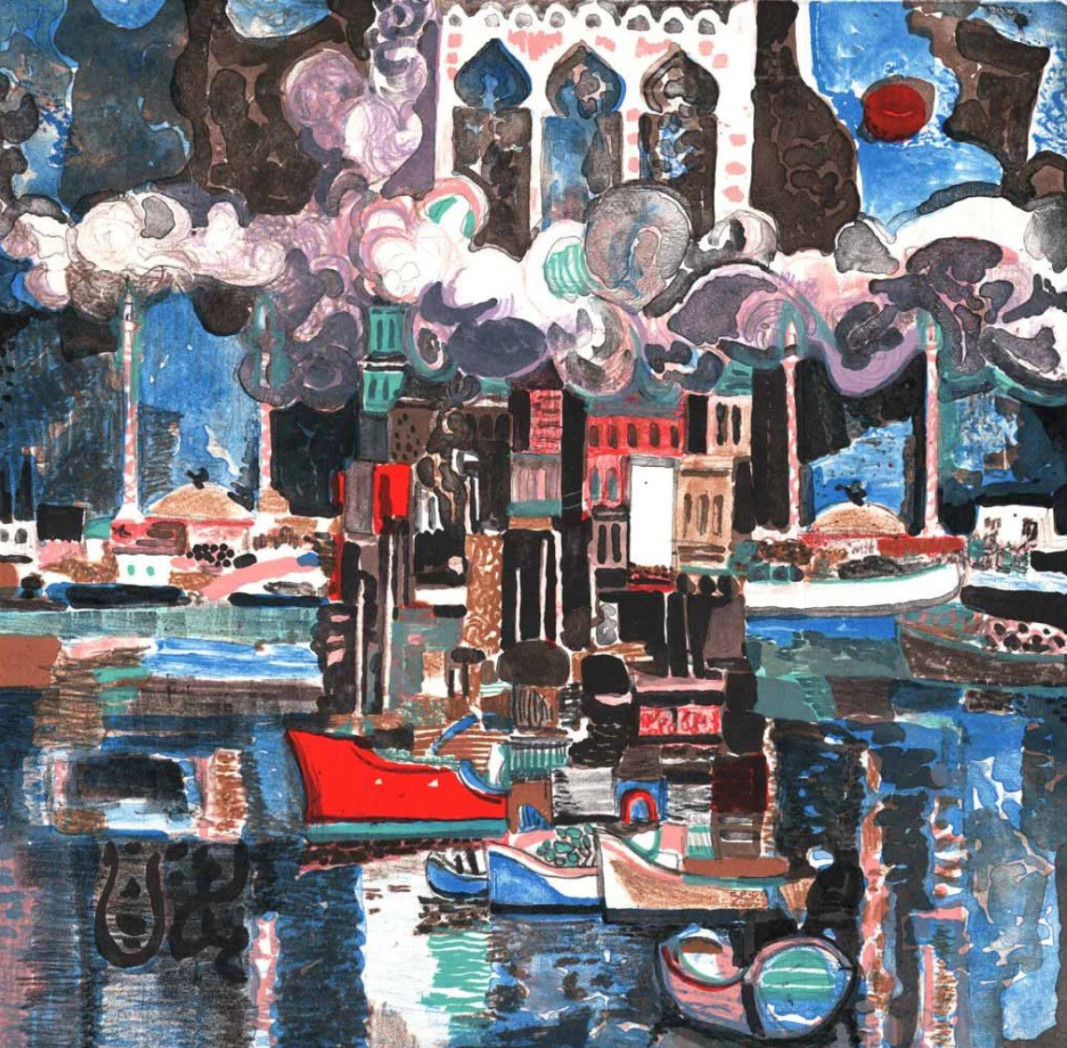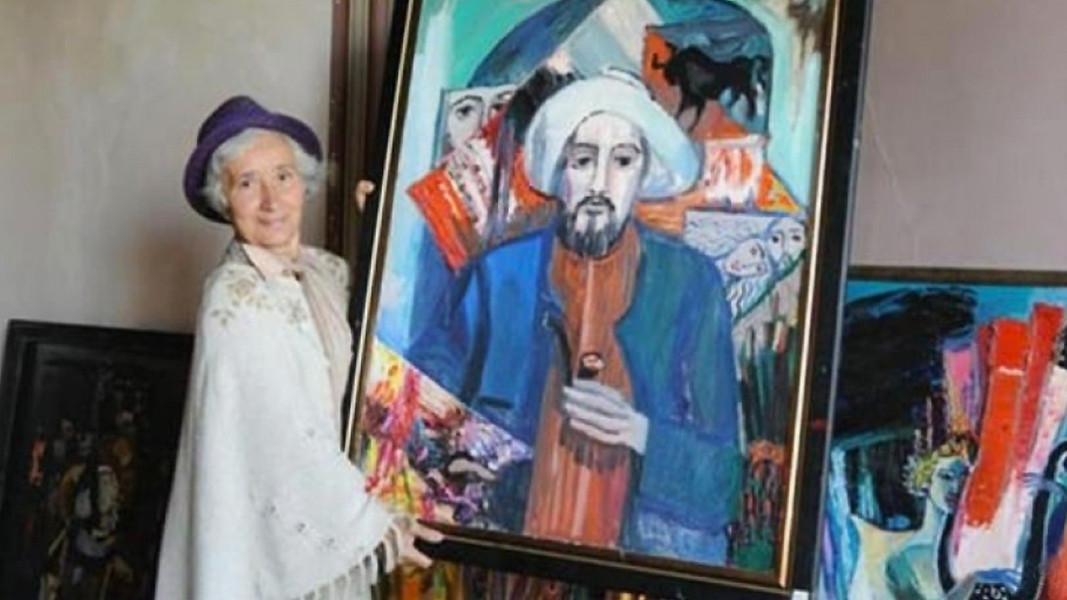 10
10
In a centuries-old city that still bears traces of the ancient Thracians and Romans, his eyes once fell upon an angelic creature and he was captivated for all time. He a faithful admirer and protector, she an inspiration and refuge for his restless soul.
Donka Paprikova, known as the "Bulgarian Mother Teresa" for her devotion to the elderly and the suffering, chose the name Russalia for the infant girl of one of her sisters.
"When the mermaids come out on the first day after Easter and start dancing on the grass, I say - today is my name day, because I am a mermaid," says 81-year-old Russalia Kirova (the name is derived from "russalka", the Bulgarian word for mermaid - ed.).
As a young girl she posed for her relative Vladimir Dimitrov-Maistora, who was annoyed by her restlessness as a fledgling ballerina. On the portrait he painted of her, on the wall of her home in Sofia, she stares with eyes "so angry and scary". Posing as a joke in front of another artist, however, will give her a most fateful gift - a kindred spirit, a privilege for the few.
At the Plovdiv Drama Theatre, where local artistic circles literally lived together in the 1960s, pianist Georgi Kanev brought his friend Dimitar Kirov to paint a portrait of ballerina Eli Ivanova. But he noticed Russalia, who was on assignment in Plovdiv, and asked her to pose for a sketch. A few quick strokes and a "fragile ballerina with a tiny waist" appeared on the white sheet, along with a proposal for... a portrait.

"As it happened, I went to Moscow soon after to study at the Bolshoi Theatre and the Art Institute," recalls Russia Kirova. And our love affair had already begun. He called me on the phone and said: "They've taken my studio and I'm so lonely, will you marry me?" I immediately said yes. But in the meantime he went to my parents in Sofia and told them that he was in love with me and that he wanted us to get married. My mother asked, "OK, but do you have the means to support both of you, do you have a place to live?" And he said, "No, nothing." "She's only twenty, she's going to study in Moscow for two years, you'll find someone else here. No way," my mother snapped. After that conversation I got a letter from her: "Don't come home during the holidays, because there's a bearded maniac here who insists on marrying you."
But the "obedient" daughter took the train to Ruse, where the lovelorn artist had been waiting for her for two days, not knowing when she would arrive. The two were married in a beerhouse in the intoxicating company of Plovdiv's bohemians. After the wedding, she returned to Moscow to finish her studies and he stayed behind to paint in Old Plovdiv, which was to become their home for the next 45 years.
"Our life together was blissful, our bond was very, very strong," recalls Russalia Kirova. He didn't necessarily paint portraits of me, but he said that my eyes and appearance matched those of the icons. He liked to say that the patina had not tarnished them over the years. I actually only posed for him once, but people always said it was me, even though he could have painted a Japanese woman.

And the mirrored feeling in that soul, two seemingly merged into one body and one soul: "My wife Russalia inspired me in all my work, in everything," says Dimitar Kirov in a BNR archive recording. One of my favourite portraits of her is " Russalia with the Tutus", for which I received the "Zahari Zograf" award - for me one of the most prestigious national awards for fine arts.
I never make a portrait to look for a physical resemblance, that's the last thing. I'm looking for the spiritual presence of the person first, and so it takes a long time to make a portrait. The actual realisation of the portrait is nothing, because I am a professional. The portrait matures for a very long time until the moment when I have to make the leap - as Stefka Kostadinova does, for example. Then you have to have the moral and physical strength to jump - as high as you can".
Born in Istanbul in 1935, the artist became associated in the 1960s with the famous Plovdiv group of artists - Georgi Bozhilov-Slona, Encho Pironkov, Ioan Leviev and Hristo Stefanov - who incorporated groundbreaking ideas into their paintings that were frowned upon by critics of the communist regime. His talent, however, was recognised abroad and would take him across many borders, from France to Thailand and Japan.
"I'll never forget meeting Salvador Dalí," says Russalia Kirova, recalling a memorable moment, "We attended his class in Paris along with many other artists, and Mitko was very happy because Dali signed his paintings. Salvador Dalí signed only those he liked, in which he recognised the talent of a true artist. Then Mitko made a portrait of Dalí - outside the class assignment. Salvador Dalí looked at his work and when he came to the portrait he laughed. I was there and I saw him put a big autograph under the portrait. Immediately after class we had our photo taken, with Mitko dressed as Salvador Dalí and me as Gala. I treasure that photo and look at it to cheer myself up, remembering that special time.
Although temporarily separated in this mortal life, Russalia Kirova still feels the artist's presence today.

"After he's gone, I'm still with him. I'm with him all my life - I'm with his paintings, I live among them," she says. And she makes sure his art endures into eternity. "He left behind an incredible body of work - monumental paintings, sculptures, frescoes, mosaics," adds Russalia Kirova. But if you're talking about preserving his art, yes, I'm here, I'm organising exhibitions and now I'm planning to organise another one - this time for the 90th anniversary of his birth. My other goal is to restore the Zachary Zograf fresco in the Old Town, part of which was destroyed in the hailstorms".
For Russalia Kirova, every morning is a holiday. "Even now, when I'm alone, when I wake up in the morning and I'm alive and well, I jump out of bed and go for a walk right after breakfast," she says. Along the cobbled streets of the Old Town, among the magnificent houses - a treasure trove of memories and secrets that will preserve the story of an artist who saw angel wings in the gentle arms of a ballerina.
The European Film Academy (EFA) has welcomed 709 new film professionals as members . Among them are actors Maria Bakalova and Boyko Krastanov and 15 other Bulgarian film professionals. As EFA members, they will be eligible to vote for the European Film..
Exactly 20 years after the release of the epic biblical film The Passion of the Christ , its director Mel Gibson will make a sequel. This was announced by the production company of the Hollywood filmmaker. The production is already in an advanced..
"In a world that is already growing apart, holding hands becomes a silent prayer - a way to come together again". So begins the description of the project "Father and Son" by Bulgarian photographer Valery Poshtarov on the website of the World..
The European Film Academy (EFA) has welcomed 709 new film professionals as members . Among them are actors Maria Bakalova and Boyko Krastanov and 15..

+359 2 9336 661
